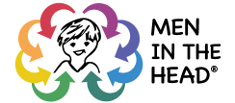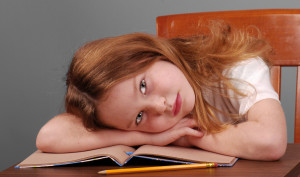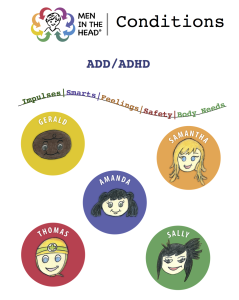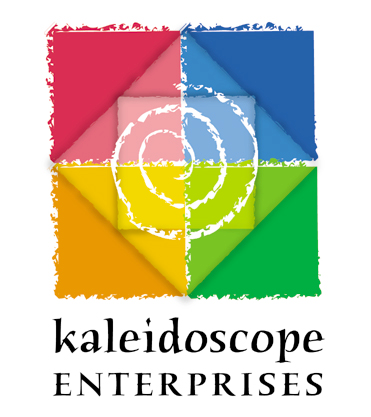ADHD
Attention Deficit Hyperactivity Disorder (ADHD) affects more than 11% of the child population and 4% of the adult population. It is a growing diagnosis that affects people in different ways, mainly in the ability to remain attentive, to regulate control over body movement, and to make good judgments.
In a large portion of people with ADHD, the disorder also affects executive function, moods, and sleep.
Statistics:
According to the Centers for Disease Control (CDC):
- Approximately 11% of children 4-17 years of age (6.4 million) have been diagnosed with ADHD as of 2011
- The percentage of children with an ADHD diagnosis continues to increase:
- 8% in 2003
- 5% in 2007
- 0% in 2011
- Symptoms usually occur around age 7
- 1% of adults have ADHD
What is ADHD?
According to WebMD, there are two major categories of symptoms of ADHD:
- Inattentive:
- Not paying attention to detail
- Making careless mistakes
- Failing to pay attention and keep on task
- Not listening
- Being unable to follow or understand instructions
- Avoiding tasks that involve effort
- Being distracted or forgetful
- Losing things that are needed to complete tasks
- Hyperactivity-impulsivity:
- Fidgeting
- Squirming
- Getting up often when seated
- Running or climbing at inappropriate times
- Having trouble playing quietly
- Talking excessively or out of turn
- Interrupting
Based on the above symptoms listed in its Diagnostic and Statistical Manual, the American Psychiatric Association has identified three types of ADHD:
- Inattentive – 1ST category of symptoms
- Hyperactive-Impulsive – 2nd category of symptoms
- Combined: Inattentive & Hyperactive-Impulsive – both categories of symptoms
Other Frequently Occurring Symptoms:
- Impaired short-term memory
- Inability to manage time
- Lack of adaptability
- Difficulty in establishing and using goals to guide behavior, such as selecting strategies and monitoring tasks
- Inability to keep emotions from becoming overpowering
- Hypersensitivity to stimuli
- Sleep problems
Men in the Head ® & ADHD:
In order to help understand the information about ADHD, we have created a visual and table categorizing the symptoms by character.
ADHD Symptoms Snapshot:
| Character | Responsibility | Symptoms |
| Gerald | Impulses | · Fidgeting· Squirming· Getting up often when seated
· Running or climbing at inappropriate times · Having trouble playing quietly · Talking excessively or out of turn · Interrupting |
| Amanda | Smarts | · Not paying attention to detail· Making careless mistakes· Failing to pay attention and keep on task
· Not listening · Being unable to follow or understand instructions · Avoiding tasks that involve effort · Being distracted or forgetful · Losing things that are needed to complete tasks |
| Samantha | Feelings | · Moodiness· Inability to keep emotions from becoming overpowering |
| Thomas | Safety | · Difficulty in establishing and using goals to guide behavior, such as selecting strategies and monitoring tasks |
| Sally | Body Needs | · Lack of adaptability with waking up, bedtime routines, eating new foods· Sleep problems |
The characters help parents and therapists describe the information to children as well as help parents keep track of the focus of particular solutions.
The Brain:
ADHD affects the activity levels of certain areas of the brain differently than individuals without ADHD.
Areas of Brain:
- Prefrontal cortex
- Cerebellum
- Basil ganglia; caudate nucleus, globus pallidus
- Limbic system
The frontal cortex appears to be thinner and matures more slowly in children with ADHD. Also, children with ADHD are about 3 years behind those without it. Conversely, the motor cortex grows faster causing the need for movement. Additionally, the entire brain volume is lower and gray matter less for children with ADHD affecting ability to pay attention or control emotions.
Neurotransmitters:
- Dopamine
- Norepinephrine
Two neurotransmitters, dopamine and norepinephrine, help send messages between areas of brain associated with attention and motivation. The brain of a person with ADHD may have less of these chemicals available.
Brain chemicals:
- Glutamate
- Glutamine
- GABA
GABA is a neurotransmitter that helps to send messages in the nervous system. It calms the nerves, and slows down the nervous system. GABA is synthesized in the brain from glutamate/glutamine.
Basically, chemicals are not being transported at the appropriate rates or in the appropriate amounts.
Popular Work:
- A famous psychiatrist, Ed Hallowell, has been working with children and adults with ADHD and is the author of best selling books, Driven to Distraction, Answers to Distraction and Delivered from Distraction. There are two Hallowell Centers, located in Boston and New York, where they help people leverage theirs strengths and resolve their relative weaknesses.
- Robert Melillo, developed the brain balance program that is based on three key pillars of brain development: sensory motor stimulation, cognitive stimulation and nutrition. He founded the Brain Balance Achievement Centers, a franchise that is spreading across the United States. He is also the author of Disconnected Kids.
- There is a leading psychiatrist, Daniel Amen, with clinics throughout the US, describes 7 types of ADD. His profession debunks his work. The source of his findings is SPECT imaging that scientists say is an outdated technology that is used for observing and predicting among groups, not individuals. When I reviewed the 7 types, I found that many of them encompassed SPD, anxiety disorder, and behavioral issues. In all cases, the Amen’s solutions involve: eating right, getting exercise, sleeping well, supplements and medications. There are Amen Centers sprinkled throughout the United States and he has published several works on the power of the mind.
Solutions:
Scientists are supporting that ADHD is hereditary and its symptoms are exacerbated by stress. Relieving stressful situations helps relieve the impact of ADHD.
Medication & Supplements:
Doctors often prescribe stimulants to help regulate the chemicals in the brain.
According to Edward Hallowell, M.D., “Medication does not cure ADHD, and it should never be the only treatment. Diet and nutrition play key roles in how well the ADD brain operates.
Toward that end, here are 10 foods, supplements, and herbs that you should add to your treatment plan. As always, talk with your doctor first before doing so.
- Protein for focus
- Balanced meals to control blood sugar levels
- Limit sugar intake to reduce hyperactivity
- Fiber rich foods to regulate hunger and minimize moods swings
- Multivitamin/Multimineral to balance nutrients
- B vitamins to improve alertness
- Zinc for concentration
- Iron for dopamine production
- Magnesium for relaxation
- Fish oil for enhanced brain function”
As I cannot make recommendations about supplements, all of these recommendations are based on an article in ADDitude Magazine based on the work of Ed Hallowell, M.D.
Other activities also help manage the symptoms of ADHD:
Exercise:
- Exercise, particularly in nature
- Team sports for collaboration and regulation
- Tae Kwon Do or karate for discipline and focus
Routines:
- Sufficient sleep
- Structure and routine in daily lives
- Limit technology, such as: video games
Training & Skill Building:
- Executive function strategies
- Biofeedback
- Neurofeedback
Complementary Therapies:
There are several options of complementary therapy that may help improve brain function,
Acupuncture, particularly auricular acupuncture, may alleviate the symptoms of ADHD and/or the side effects of the prescribed medications.
Deep Breath balances the autonomic nervous system, according to ADDitude Magazine.
Essential Oils, influencing the limbic system, to help with regulation involve:
- Pituitary gland: clary sage, jasmine, patchouli, ylang ylang
- Hypothalamus: bergamot, frankincense, geranium, rosewood
- Thalamus: clary sage, jasmine, grapefruit, rose
- Hippocampus: black pepper, peppermint, rosemary, lemon
- Donaldson 2004, Sorensen 201, Tisserand 201, Damian & Damian 1995
Flower Essences (Bach): chestnut bud, clematis, gentian, gorse, hornbeam, larch, white chestnut, wild rose, depending upon your particular ADHD symptoms.
Massage for body and sensory stimulation
Meditation for relieving stress
Yoga to center and calm
There is significant work being done in the area of ADHD providing lots of available solutions. There are traditional and alternative ways to relieve symptoms of ADHD that parents can explore to help themselves and their children.
References:
ADDitude magazine
Amenclinics.com
“Daniel Amen is the most popular psychiatrist in America. To most researchers and scientists, that’s a very bad thing”, Washington Post, August 9, 2012
Brainbalancecenters.com
Drhallowell.com
Healthline.com
Huffington Post
New York Times, In-depth Health Report
WebMD.com



